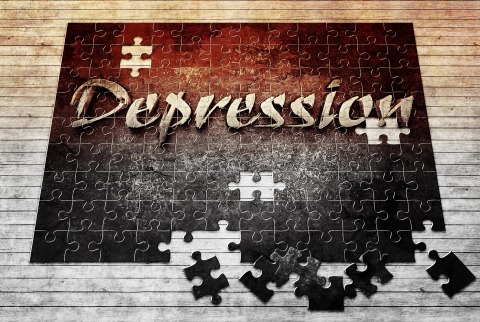Dear Depression,
For years, I have spent days, weeks and even months carrying the shadowy spirit of your presence on my shoulders, a burden that few can possibly understand. I have battled against a demon that possesses an arsenal of weapons that I could ever look to compete with and you, with your army of companions by your side, stand tall as I grow weaker. My energy is spent, tormented by the knowledge that I will never truly escape your grip. You have a hold upon me that no lover will break, that no friendship can weaken and that no family member can dispel. It is like a chain upon my heart, a deep wound across the recesses of my mind. You work your sinewy magic, a disappearing act that appears only when unwanted. In the very moments that I believe I am recovering from the addictive and toxic feel of your presence, you stand there and remind me that you never truly left me.
You seem to spend your life finding ways to torment me. Do you have any idea of the times that I have spent wondering if I should just continue wandering this path or whether I should just end it all? Do you have any idea what it is like to stand on top of a bridge, to watch speeding cars spin by, unaware that above them is a lonely man who contemplates ending it all? You know the reason why I don’t. I don’t end it not because I think that my life matters any more than anyone else’s. I don’t end it because I know that my death would cause more untold misery to my family than it would solve my problems. I dearly love my family and you know that. You use it as a weapon against me, reminding me that my passing would cause them hurt.
And so I continue this facade with you, this dance of the devil that lingers. I continue to pretend that I am okay. I continue to pretend that I don’t spend my nights staring at a dark ceiling, reflecting on things that happened many months ago. I continue to pretend that I wake up each day, happy with the man that reflects back at me in the mirror. I continue to pretend that I’m okay living a life where I return an empty flat with no-one to greet me, that I’m okay living a life where my work is the most important feature of my life. You know all of this. You know everything about me. I can’t hide anything from you because you, like no other creature I have encountered, are able to cast away the thin veil of my disguise and reveal to me the skeletal structure underneath me.
What makes it worse is that you plague not only me but many of those who I love. I am sure that you are capable of taking many forms, that you appear to different people at different times. I have no doubt that you are capable of revealing yourself in ways unimaginable to me. None of that, unfortunately, matters. What matters is your never-ending, unnerving ability to haunt me and keep me awake. I have tried to deny your presence for the last few months and now I can deny it no more. You are with me. You stand by me, no matter the time of the day, no matter the month or year. You stand by me.
I have spent my life battling demons and you are the greatest battle I have ever faced. You appeared to me at my weakest moments. When I lost my first and true love, you were there. When I fell in love again and I lost her, you were with me. When each of my family members passed away, you were with me. Your presence is unwanted. You were never sought out or requested. You simply appeared because you felt that you were needed. I ought to remind you that you are not needed. You are not wanted. You simply remain with me because I do not know how to get rid of you.
I have tried. You know that. I have tried to placate you with drugs. I have tried to talk you out of my life with an endless list of therapists and friends. I have tried to pretend that I am okay with cheap flings and meaningless relationships. It is time for me to be honest with you. It is not that you are a presence. It is that you are part of me now. I am depressed. You have become me and I have become you. For that, I am sorry. I am sorry that the light I once had is now eclipsed by the darkness of whatever tormented creature I have become.









